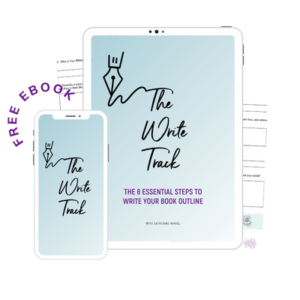We do storytelling every day — whether formal or informal — and as with everything in life, some of us are better at it than others. We’ve all met those people whose stories aren’t so captivating, who ramble on and on about something while you tune out and wonder how you can escape. I’m sure we all have had a time or two where that has happened!
Believe it or not, our brains are hardwired for storytelling because it’s how we learned since the dawn of time. We can learn, understand, and retain information through the first second. Even third-hand experiences, so the more captivating and engaging your story is, the more likely someone will remember it.
So now you understand how important it is, but how can you become better at it?
Here are my five tips for improving your storytelling.
1. Practice Makes Perfect
As the old saying goes, Rome wasn’t built in a day, and neither will your storytelling capabilities. So if you want to tell incredible stories, start practicing!
To practice, you can take notes from some of the world’s best communicators and storytellers. A simple Google search can help, but TED talks are also a great resource. When you find those captivating presentations, you can take notes of what is enticing about their stories.
2. Emphasize Hardship and Struggle
Unfortunately, nothing is exciting or enticing about a story that is all positive from start to finish. However, the best stories will have some drama and keep you on the edge of your seat, wondering how the end will turn out.
Even if you’re not telling a story that’s rife with controversy, that doesn’t mean that your story shouldn’t be said. Instead, find moments of unsureness, difficulty, or even hardship to add that “spice” to your storytelling. Conflict is a great way to draw people into your story.
3. Explain, Don’t Tell
When telling a story, you want to be concise to keep your reader engaged and explanatory so that your reader or listener can figure out things for themselves. On the other hand, we all want to feel smart, so it tends to be boring when someone tells us the point of the story rather than letting the details guide them.
For example, one might say:
“It was the best day of my life.”
While this tells the story’s endpoint, there’s zero explanation for why it was so great. In storytelling, you want to focus on the details and events rather than the bottom line.
4. Use Lots of Detail
Like you want to explain your story rather than tell someone the final point outright, bringing in details can help.
If you’re telling a story, discuss all elements that set the stage for what you’re talking about. Use the five senses — see, smell, taste, touch, feel — to transport readers into understanding exactly where your story takes place and how they should feel.
5. Be Unique
When storytelling, try to steer clear of those classic stories that have been told millions of times. Each of us has a unique perspective and thus story to tell, so figure out what stories you can speak to help you stand out.
For MORE Storytelling musts … check out these 3 things I speak about in this Forbes Article: 3 Storytelling Tricks That Will Make Clients Flock to your Business
Resources
Join The Storytellers Café – My free training community to help you create an impact through your story
Enrol in The 5-Day Content Experience – Learn how to repurpose your content like a pro…in 5 minutes a day!

Need help telling your story in your own voice? Let’s make it happen. Schedule a consultation with me here







